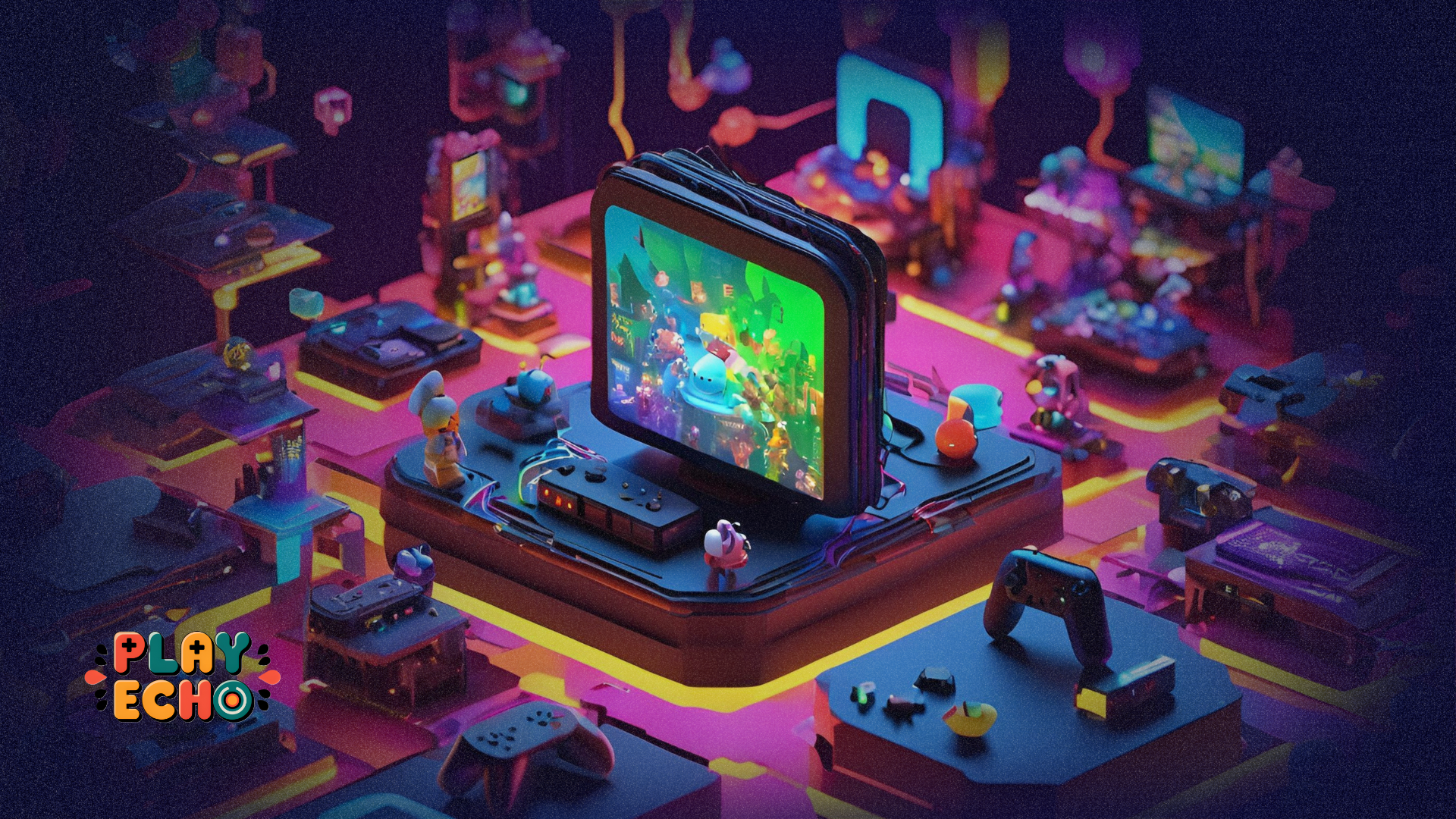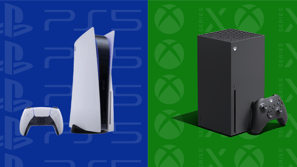
Cross-Platform Play: How It’s Shaping the Future of Multiplayer
Cross-platform play is revolutionizing multiplayer gaming by allowing players across different platforms to interact seamlessly. This development is fostering more inclusive communities, enhancing player engagement, and influencing game development strategies.
GAME INDUSTRY
Tama
1/22/2025
Cross-Platform Play: Uniting Gamers Across Platforms
Cross-platform play, the ability for players on different gaming platforms to play together in the same game environment, has emerged as a transformative force in the gaming industry. With the increasing popularity of multiplayer games and the diverse range of platforms available, cross-platform play is helping to bridge the gap between players across different consoles and devices. This feature is reshaping multiplayer gaming by breaking down traditional platform barriers, promoting inclusivity, and fostering more engaged and connected communities.
One of the most significant impacts of cross-platform play is the expansion of player communities. Traditionally, players were confined to interacting only with others who owned the same gaming console or device. However, with cross-platform play, this restriction is removed, allowing players on PlayStation, Xbox, and PC, among others, to compete and cooperate in the same game. This larger pool of players not only enhances the social aspect of gaming but also improves matchmaking times and ensures a more balanced and engaging experience.
In the past, players who chose different platforms would often find themselves isolated from their friends and gaming groups. With cross-platform functionality, it has become easier for people to enjoy multiplayer experiences together, even if they use different consoles or devices. This inclusivity ensures that no player is left behind simply because of their choice of platform, and it brings communities together in ways that were previously impossible.
Cross-platform play has also been shown to increase the longevity of games. Multiplayer games, especially live-service titles, rely on a steady influx of active players to keep the game thriving over time. With a larger player base enabled by cross-platform play, developers are able to provide consistent updates, expansions, and special events that keep players engaged.
Games that support cross-platform play experience a greater sense of continuity, as the player population remains strong and active. This helps maintain a healthy ecosystem for the game, where players are more likely to stay invested for the long term. It also encourages developers to continue innovating and expanding the game with fresh content, knowing that the player base is large enough to support it.
In fact, many games with cross-platform play are able to maintain high player engagement levels, even years after release. Titles such as “Fortnite,” “Call of Duty: Warzone,” and “Rocket League” are prime examples of games that have thrived thanks to their cross-platform capabilities, keeping players hooked with regular content updates and community events.
Cross-platform play is a step forward in making gaming more inclusive and accessible to a broader audience. Gamers no longer need to worry about which platform their friends are using or what system they should buy to join in on a game. This inclusivity opens up the multiplayer experience to a wider range of players, allowing them to enjoy games with their social circles regardless of the console they own.
Moreover, cross-platform play is instrumental in helping level the playing field for players who may have physical or financial limitations. For example, someone who uses a gaming PC might have access to superior hardware capabilities, but with cross-platform play, they are able to compete with players using consoles without a significant gameplay advantage. This eliminates concerns about platform inequality and promotes fairness in multiplayer gaming.
Cross-platform play also benefits the esports scene, where players and teams from different platforms can compete against each other in official tournaments. By fostering a more inclusive competitive environment, esports can continue to grow as a global phenomenon, bringing players together from around the world without barriers.
As the demand for cross-platform play increases, it is influencing game development strategies. Developers are now designing games with cross-platform compatibility in mind, ensuring that their titles can be enjoyed by players across all major platforms. This approach requires a shift in development practices, as developers must account for technical challenges such as input methods, gameplay balance, and network infrastructure.
In addition to technical considerations, game developers also need to focus on creating a consistent user experience across platforms. Whether a player is on a PlayStation, Xbox, or PC, they must be able to access the same content, enjoy the same features, and compete on equal terms. This ensures that the game feels cohesive, regardless of the platform the player chooses.
The integration of cross-platform play has led to developers prioritizing player-centric features like cloud saves, progression tracking, and unified friends lists. These features allow players to continue their progress across platforms seamlessly, further enhancing the experience and encouraging players to engage with the game on a deeper level.
Implementing cross-platform play is not without its technical challenges. Game developers must address issues such as input compatibility between different devices and balancing gameplay mechanics to ensure fair competition. For example, players on consoles typically use controllers, while PC players may use a keyboard and mouse. Ensuring that both control schemes are equally competitive is crucial for maintaining a balanced playing field.
One solution to this challenge is input-based matchmaking, where players are paired with others using similar input methods. This allows developers to create a fairer competitive environment, as players with comparable control options are more likely to have an equal skill level. This approach helps mitigate the potential advantages that certain input devices, such as a keyboard and mouse, might offer over a controller.
Another challenge that developers face is maintaining stable cross-platform networking. Ensuring that players on different platforms can connect to the same servers without performance issues is essential for delivering a smooth and enjoyable experience. Game developers invest considerable resources in optimizing server infrastructure and maintaining low latency, ensuring that cross-platform play does not negatively impact gameplay quality.
Conclusion
Cross-platform play is transforming the landscape of multiplayer gaming by promoting inclusivity, expanding player communities, and enhancing the overall gaming experience. With the continued growth of cross-platform play, it is expected that more games will embrace this feature, fostering a more connected and engaging multiplayer ecosystem. As developers continue to innovate and overcome technical challenges, cross-platform play will undoubtedly play a key role in shaping the future of multiplayer gaming.
PlayEcho delivers the latest news, reviews, and insights from the gaming world, highlighting local talents and global trends for gamers everywhere.
FAQs
What is cross-platform play?
A: Cross-platform play allows players on different gaming platforms—such as PlayStation, Xbox, and PC to play together in the same game environment.How does cross-platform play benefit players?
A: It expands player communities, reduces wait times for matches, and enables friends and family to play together regardless of their chosen platform.What challenges do developers face with cross-platform play?
A: Developers must address technical challenges like balancing gameplay mechanics across different input devices and hardware capabilities, and ensuring fair competition among players.Can all games support cross-platform play?
A: Not all games support cross-platform play. Implementing this feature requires significant development resources and may not be feasible for every game.Is cross-platform play the future of gaming?
A: Many industry experts believe that cross-platform play is a significant trend that will continue to grow, leading to more inclusive and connected gaming experiences.
Terms and Conditions
Privacy Policy
PlayEcho
Newest information about game industry and analysis.
Subscribe to our newsletter
© 2025. All rights reserved.








